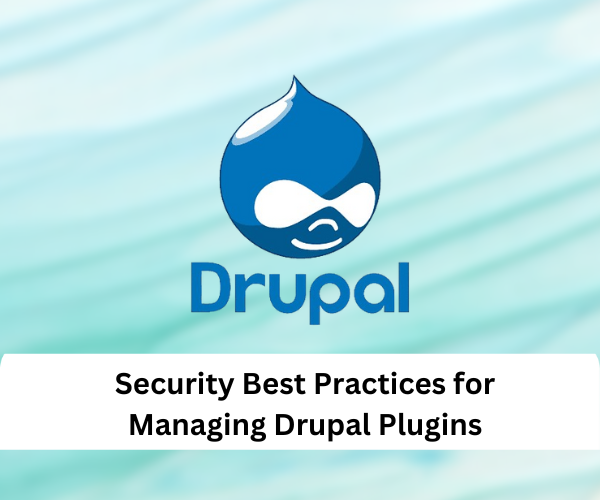In the dynamic world of web development, Drupal stands out as a powerful and flexible content management system (CMS). One of Drupal’s greatest strengths is its extensive array of plugins and modules, which extend the platform’s capabilities. However, managing these Drupal plugins comes with its own set of challenges, particularly in the realm of security. As vulnerabilities in plugins can potentially compromise your entire site, understanding and implementing best practices for security is crucial. This guide will walk you through essential security practices for managing Drupal plugins, ensuring that your site remains safe and reliable.
Understanding Drupal Plugins and Modules
Before diving into security practices, it’s essential to grasp what Drupal plugins and modules are. In Drupal, plugins and modules refer to add-ons that enhance the functionality of your site. Drupal Modules are collections of functions that can be enabled or disabled to add features, while Drupal Plugins often provide more granular functionality within those modules.
- Choose Reliable Plugins
The first step in ensuring security is selecting plugins from reputable sources. When considering Drupal Plugin Development, prioritize plugins that are:
Maintained by Trusted Developers: Opt for plugins developed and maintained by well-known, reputable developers or organizations.
Well-Reviewed: Check user reviews and ratings to gauge the plugin’s reliability and security.
Active and Updated: Ensure the plugin is regularly updated to address security vulnerabilities and compatibility issues.
Drupal Ecommerce Plugins or Drupal Ecommerce Modules, in particular, should be vetted carefully due to the sensitive nature of transaction data.
- Regularly Update Your Plugins
Keeping your Drupal plugins up to date is one of the simplest yet most effective ways to secure your site. Developers frequently release updates to fix security vulnerabilities, improve performance, and add new features. Regular updates help protect your site from known exploits.
Automatic Updates: Consider enabling automatic updates for essential modules, but always test updates in a staging environment first.
Manual Checks: Regularly check for updates on the Drupal module repository and apply them as needed.
- Implement Proper Access Controls
Access control is crucial for maintaining the security of your Drupal site. Only provide access to individuals who need it and use roles and permissions effectively to limit access to sensitive areas.
Role Management: Use Drupal’s role and permission settings to control which users can install or modify plugins.
Custom Roles: For more granular control, consider creating custom roles with specific permissions related to plugin management.
- Audit and Monitor Plugins
Regular audits and monitoring of your Drupal plugins help identify potential security issues before they become critical.
Security Audits: Periodically review your installed plugins to ensure they comply with your security policies.
Monitoring Tools: Utilize monitoring tools to track changes and detect unusual activity related to plugin usage.
- Secure Custom Drupal Modules
When developing Custom Drupal Modules, follow best practices to ensure they are secure from the ground up:
Code Review: Conduct thorough code reviews to identify and fix security vulnerabilities.
Use Drupal APIs: Leverage Drupal’s built-in APIs and functions rather than writing custom code that could introduce security risks.
Sanitize Inputs: Always sanitize user inputs and validate data to prevent common security issues like SQL injection and cross-site scripting (XSS).
- Backup Your Site Regularly
Regular backups are essential for disaster recovery. In the event of a security breach or plugin failure, having up-to-date backups allows you to restore your site to a previous state.
Automated Backups: Set up automated backups to ensure that you have the latest versions of your site and database.
Backup Storage: Store backups securely, preferably in an off-site location or a cloud storage service.
- Implement Security Modules
Drupal offers a range of security modules designed to enhance the security of your site. Some useful modules include:
Security Kit: Provides various security hardening options.
Security Review: Scans your site for potential security issues and provides recommendations.
Captcha: Helps prevent automated attacks by adding CAPTCHA challenges.
For Drupal Ecommerce Modules, consider additional security measures to protect transaction data and customer information.
- Follow Drupal’s Security Advisories
Drupal’s security team regularly publishes advisories about known vulnerabilities and patches. Staying informed about these advisories helps you address potential issues before they affect your site.
Subscribe to Notifications: Subscribe to Drupal’s security mailing list or follow the security advisories on the Drupal website.
Apply Patches Promptly: Apply recommended patches and updates as soon as they are available to mitigate security risks.
- Educate Your Team
Security is a shared responsibility. Ensure that everyone involved in managing your Drupal site understands the importance of security best practices.
Training: Provide training for your team on security awareness and best practices related to plugin management.
Documentation: Maintain clear documentation on your site’s security policies and procedures.
- Conduct Regular Penetration Testing
Penetration testing involves simulating attacks on your site to identify vulnerabilities. Regular penetration tests help you uncover potential security issues before malicious actors do.
Professional Services: Consider hiring professional security experts to perform comprehensive penetration tests.
Remediation: Address any vulnerabilities identified during testing promptly to maintain site security.
Conclusion
Managing Drupal plugins securely is crucial to maintaining a safe and functional website. By selecting reliable plugins, keeping them updated, implementing proper access controls, and following best practices for custom module development, you can significantly reduce the risk of security breaches. Regular audits, monitoring, and education further bolster your site’s defenses, ensuring that you stay ahead of potential threats.
Incorporating these practices into your Drupal Module Development will help protect your site from vulnerabilities and ensure a secure and seamless experience for your users. Remember, security is an ongoing process, and staying vigilant is key to safeguarding your Drupal site.



